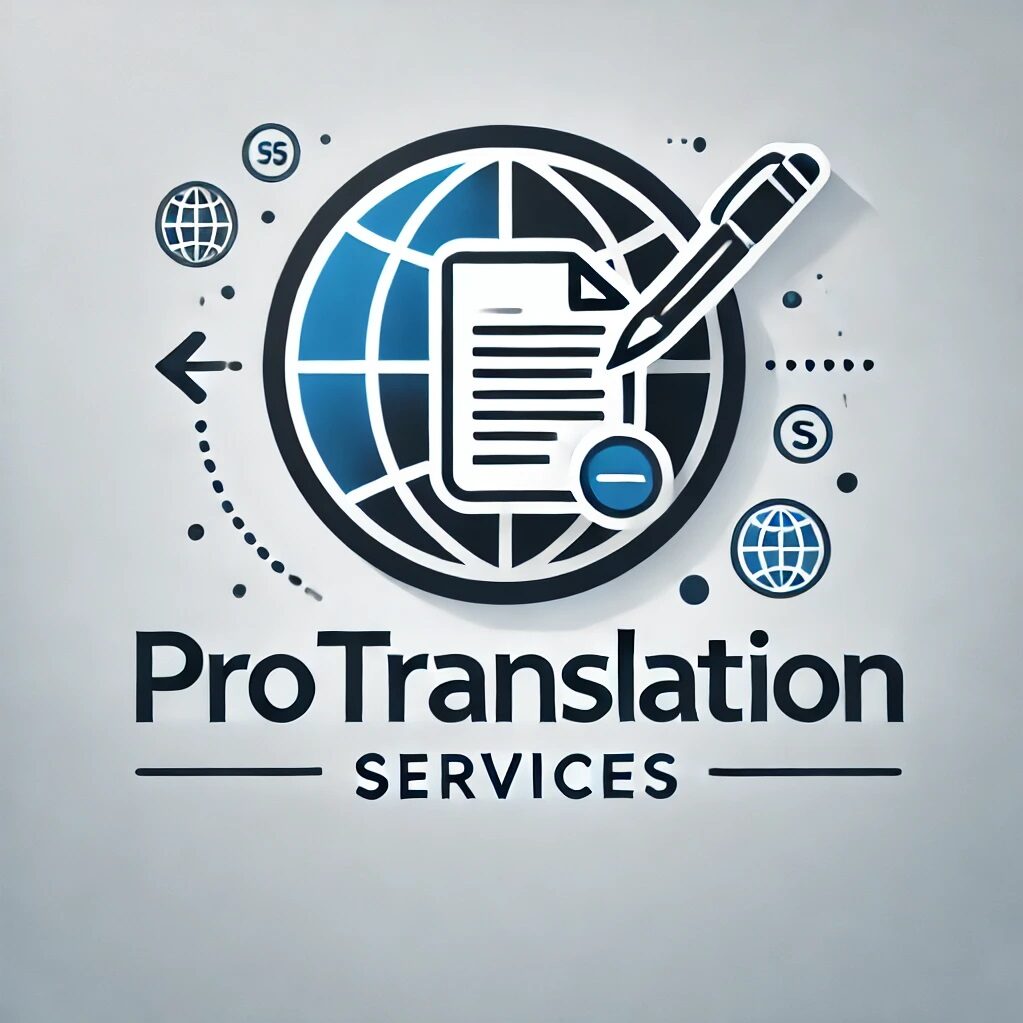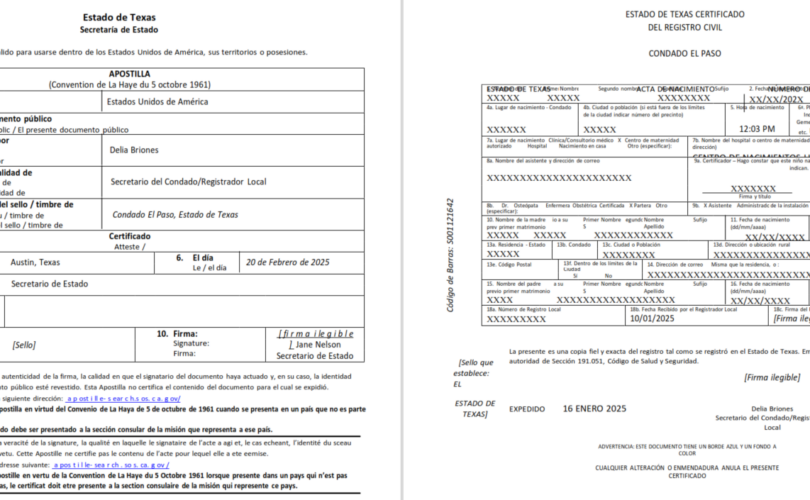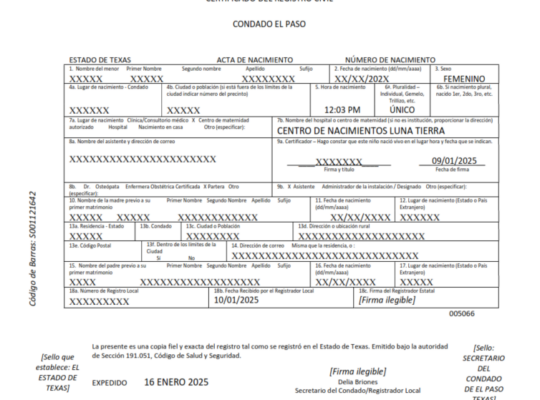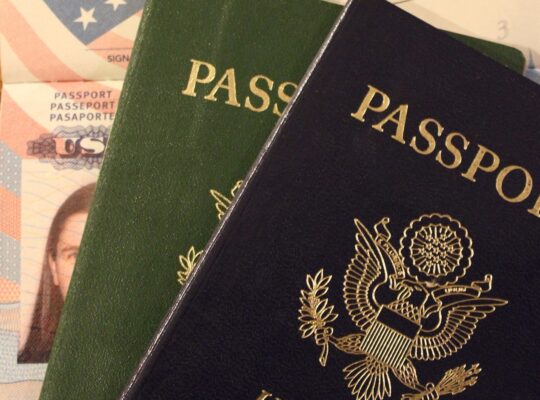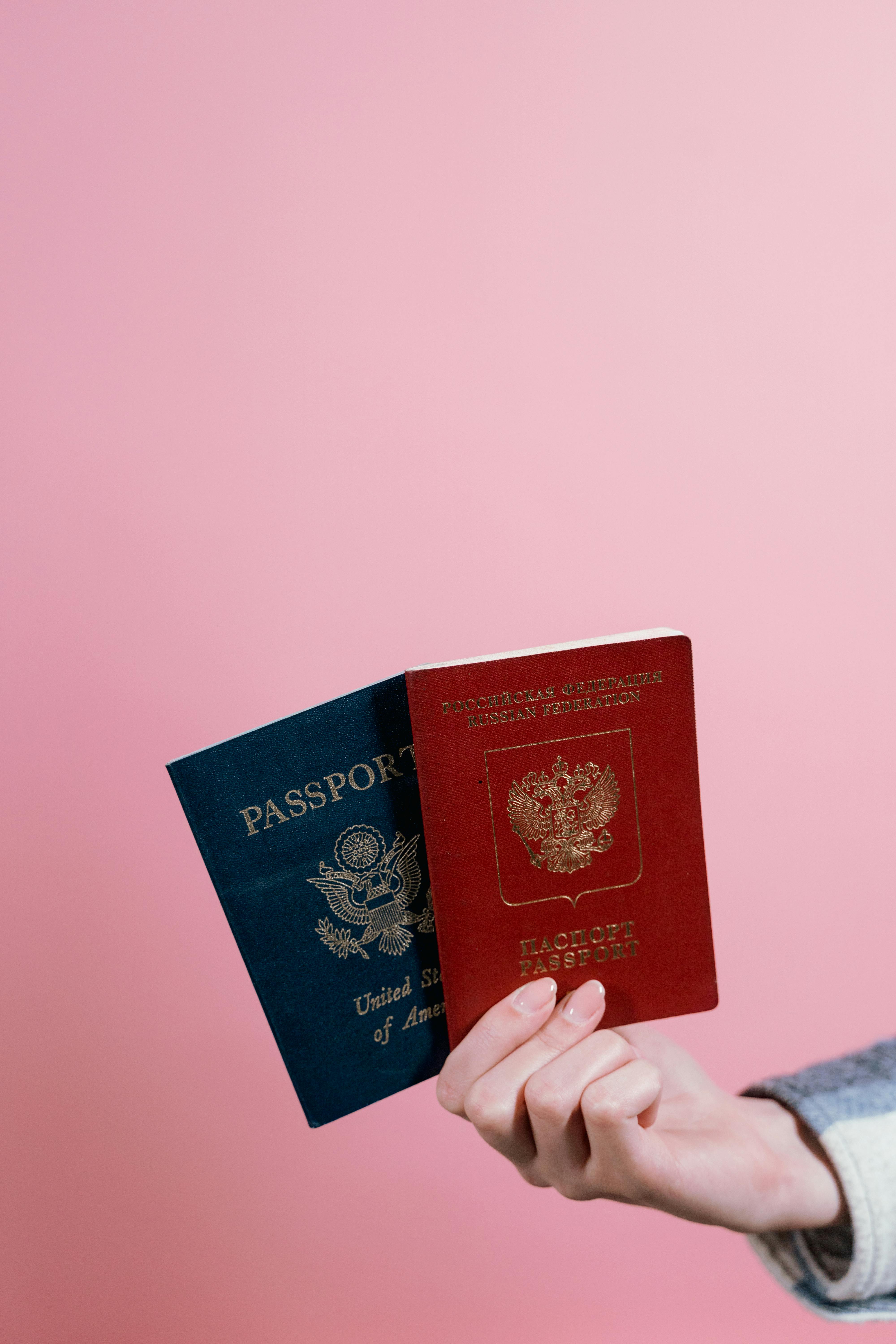or a birth certificate translation to be accepted by USCIS, government agencies, or legal institutions, it must meet the following requirements:
1. Complete and Accurate Translation
- The translation must be word-for-word, including:
- Names (exactly as they appear)
- Dates
- Stamps, seals, and signatures (noted as «[Stamp: Official Seal]»)
- Any handwritten or printed text
- No summarization is allowed.
2. Certification Statement
- The translator must provide a certification letter stating that the translation is accurate.
- The certification must include:
- A statement confirming that the translation is complete and correct.
- The translator’s full name and competency in both languages.
- The translator’s signature, address, and date.
📌 Sample Certification Statement for USCIS:
Certification of Translation Accuracy
«I, [Translator’s Full Name], certify that I am fluent in [Source Language] and English and that the attached document is a true and accurate translation of the original birth certificate.»
Translator’s Name: [Full Name]
Address: [Translator’s Address]
Signature: _______________
Date: [MM/DD/YYYY]
3. Format Similar to the Original Document
- The translated document must match the layout of the original, including:
- Titles and sections (e.g., «Name of Father» → «Nombre del Padre»)
- Line breaks and formatting
- Official stamps (noted as «[Official Stamp]»)
4. Notarization (If Required by the Receiving Institution)
- USCIS does NOT require notarization, only certification.
- Other institutions (such as courts or embassies) may require notarization or an apostille.
5. Additional Requirements for International Use
- If the birth certificate will be used abroad, it may need an apostille or be translated by a sworn translator (depending on the country’s regulations).
In case you need a translation please contact us
Frequently Asked Questions (FAQs)
1. What languages do you offer translation services in?
We provide professional translation services in a wide range of languages, including but not limited to English, Spanish, French, German, Chinese, Arabic, Portuguese, Russian, and more. Contact us for specific language pair availability.
2. What types of documents can you translate?
We translate legal documents, business reports, technical manuals, websites, marketing content, academic papers, medical records, personal documents (like birth certificates), and more.
3. How do you ensure the quality of translations?
Our translators are native speakers with subject-matter expertise. Every project goes through a multi-step quality assurance process including editing and proofreading.
4. Are your translators certified?
Yes, we work with certified translators when needed, especially for legal, immigration, and official government use. Certifications are made by notary public.
5. How long does a translation take?
Turnaround time depends on the document’s length and complexity. Standard documents (1–2 pages) can often be completed within 24–48 hours. Urgent services are available.
6. Do you offer notarized or sworn translations?
Yes, we provide notarized and sworn translations for legal and official documents. Let us know your specific requirements.
7. Is my information confidential?
Absolutely. We treat all documents with the highest level of confidentiality and are happy to sign a non-disclosure agreement (NDA) if required.
8. What are your translation rates?
Rates vary depending on the language pair, document type, and turnaround time. We offer competitive, transparent pricing. Contact us for a free quote.
9. Do you offer machine translation or human translation?
We specialize in human translation to ensure cultural accuracy, context, and tone. Machine translation may be used in limited cases for internal use, but never for final deliverables unless requested.
10. How do I get started?
Simply upload your document or email it to us, specify the source and target languages, and we’ll provide you with a quote and timeline.
